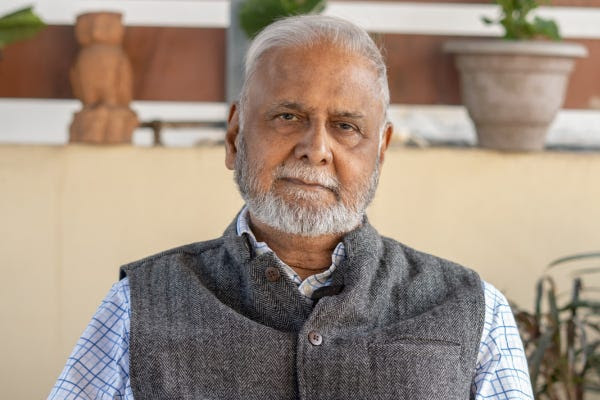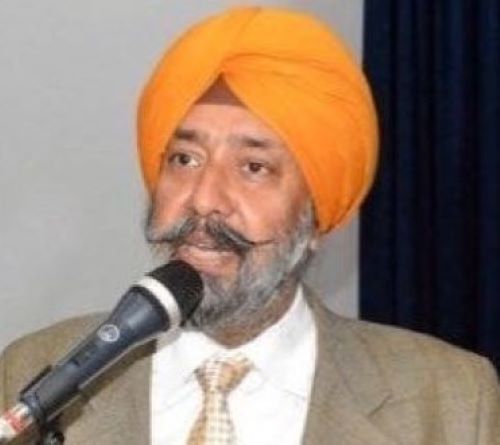 India lost one of its most steadfast champions of democratic transparency on September 12, 2025, when Jagdeep Singh Chhokar, co-founder of the Association for Democratic Reforms (ADR), passed away at 81 following a heart attack. His death marks the end of an era for electoral reform advocacy and represents a profound loss for India’s democracy movement.
India lost one of its most steadfast champions of democratic transparency on September 12, 2025, when Jagdeep Singh Chhokar, co-founder of the Association for Democratic Reforms (ADR), passed away at 81 following a heart attack. His death marks the end of an era for electoral reform advocacy and represents a profound loss for India’s democracy movement.
The Man Behind the Mission
Born in 1944, Chhokar’s journey to becoming a democracy crusader was as unconventional as it was inspiring. Beginning his career as a mechanical engineer with Indian Railways, his path through varied professional landscapes ultimately shaped his deep understanding of institutional accountability.
His academic credentials were impressive and diverse: a Ph.D. in Management and Organisational Behaviour from Louisiana State University, an MBA from Delhi University, engineering degrees from London’s Institution of Mechanical Engineers and Institution of Production Engineers, and later, a law degree from Gujarat University. This multidisciplinary training equipped him with both analytical rigour and legal acumen, vital to his reform work.
For over two decades, from 1985 to 2006, he served at the Indian Institute of Management, Ahmedabad, as Professor of Organisational Behaviour, Dean, and Director In-charge. His academic pursuits extended globally, with teaching stints in the United States, Australia, France, and Japan.
Birth of a Democratic Revolution
Chhokar’s civic awakening came in 1999, when his IIM-A colleague Trilochan Sastry examined the nomination papers of Lok Sabha candidates from Ahmedabad. The discovery that candidates were required to disclose only minimal personal details exposed the opacity of India’s electoral process. This revelation galvanized Chhokar and ten other academics to file a Public Interest Litigation in Delhi High Court.
From this modest beginning was born the Association for Democratic Reforms (ADR), destined to become one of India’s most influential civil society organisations. Its founding principle was elegantly simple yet revolutionary: voters deserved complete information about candidates in order to make informed choices.
Landmark Legal Victories
Chhokar’s methodical approach to judicial reform yielded transformative victories:
The Candidate Disclosure Mandate (2002–2003): The Delhi High Court’s order, upheld by the Supreme Court, required all candidates to file sworn affidavits disclosing their educational qualifications, income, assets, and pending criminal cases. Attempts by the political establishment to nullify the ruling were overturned after a successful appeal to President A.P.J. Abdul Kalam and a subsequent Supreme Court verdict.
The Electoral Bonds Verdict (2024): Perhaps his crowning achievement, ADR’s petition against the controversial Electoral Bonds scheme led to the Supreme Court striking it down as unconstitutional. The court ruled that unlimited, anonymous political donations violated citizens’ right to information under Article 19(1)(a).
Electronic Voting Machine Reforms (2024): Another ADR petition resulted in provisions for enhanced verification of EVMs at the request of election runners-up, further strengthening electoral integrity.
A Multifaceted Advocate
Chhokar’s activism extended far beyond electoral reform. He was the founding chairperson of Aajeevika Bureau, which addresses internal migration issues, and an avid ornithologist certified by the Bombay Natural History Society. His passion for transparency also shaped his prolific writing: he published in academic journals and contributed regularly to leading Indian newspapers. Internationally, he engaged in research on organisational behaviour and cross-cultural leadership.
Fighting Until the End
Even in his eighties, Chhokar remained an active advocate. His final major battle was over the Special Intensive Revision of electoral rolls in Bihar, where ADR petitioned the Supreme Court to prevent potential disenfranchisement. The case remained pending at the time of his death, underscoring his lifelong commitment to safeguarding electoral integrity.
A Legacy of Institutional Impact
Chhokar’s influence on Indian democracy was profound. Former Chief Election Commissioner S.Y. Quraishi recalled how the Election Commission once viewed ADR as adversarial, only to later recognise its role as a collaborator in strengthening democracy. Today, millions of voters access critical information about candidates’ criminal, financial, and educational backgrounds thanks to his tireless advocacy.
Former Election Commissioner Ashok Lavasa described his death as “tragic,” emphasising that voices like his are vital for questioning authority. Politicians and activists alike acknowledged his impact: he compelled the nation to confront the cracks in its democratic edifice. Activist Yogendra Yadav remembered him as a truly selfless champion of democracy—humble, persistent, and deeply committed to public causes.

Karan Bir Singh Sidhu, IAS (Retd.), former Special Chief Secretary, Punjab, writes on the intersection of constitutional probity, due process, and democratic supremacy.
The Final Act of Service
In keeping with his lifelong dedication to society, Chhokar donated his body for medical research. This final gesture reflected the same spirit of service that defined his decades of reform work.
An Enduring Challenge
Chhokar leaves behind not only landmark judicial victories but also an unfinished agenda. His conviction that democracy cannot be vibrant so long as political parties remain non-democratic remains a pressing challenge. His concern for ADR’s future sustainability highlights the fragility of reform movements reliant on individual leadership.
Jagdeep Singh Chhokar transformed from a distinguished management professor into one of India’s most consequential democracy activists. Through meticulous legal strategy, unwavering persistence, and an uncompromising commitment to transparency, he fundamentally altered the relationship between Indian voters and their representatives.
His life embodied the principle that democracy is not a spectator sport—that informed citizens, armed with facts and determination, can compel even the most powerful to bend to democratic will. In an age of institutional erosion and democratic backsliding worldwide, his legacy shines as a beacon for citizen-led reform.
As India continues to wrestle with questions of electoral integrity and political transparency, Chhokar’s example is a reminder that democracy requires eternal vigilance—and that ordinary citizens, when organised and persistent, possess extraordinary power to defend it.
“Elections in India should not just be contests of power, but rituals of trust.” – A vision that defined Jagdeep Singh Chhokar’s life and continues to challenge India’s democratic future.